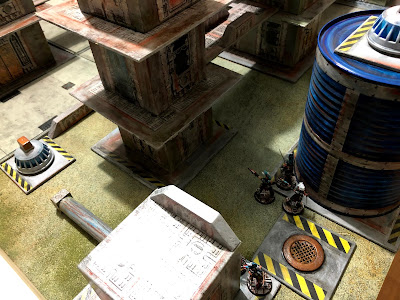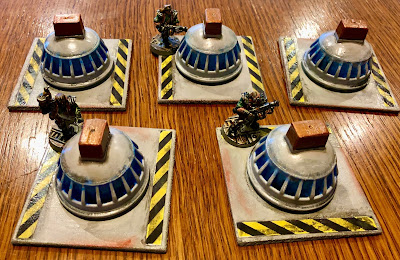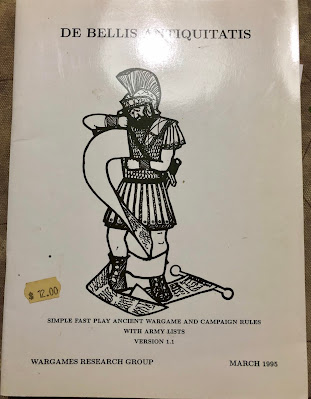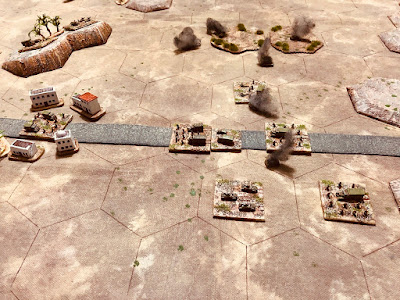Originally I was going to use a snakes and ladders campaign approach I used with a Jacobite campaign (see here) for my Necromunda gang campaign. Then after working through a campaign background where three gangs (Orlock, Escher and Goliath) are trying to control one of the levels of the massive city spire Sub-Primus-X. I decided instead to try an approach based around the Monopoly and drew up a small campaign board (see below). The idea has gangs moving around the board and for each habitat square (with skulls) they land on they get to control it. There are additional squares where gangs:
- Recruit new members - Gangs can add one new member every time they pass through two of the corners.
- Go to jail - Lose a member through arrest.
- Trade - Gangs are able to gain new equipment and abilities
- Raided by the authorities - Gangs facing off against Adeptus Arbites)
When a gang lands on a habitat square controlled by another gang a game is played. If the winner is the controlling gang, they keep control of the habitat block and improve the likelihood recovery for any members downed during the game. Should the controlling gang lose the game, control of the habitat is given up to the attacking gang, but neither gang benefits from improved recovery for members downed.
Gang members don't want to lose too many members in their games as they can only recruit twice for every rotation of the board.
I will be writing up the rules in more detail as the campaign progresses and I firm up some of the rules.
 |
| Campaign Board |
I will be using the scenarios from the original Necromunda rule book and dicing to determine which scenario to use.
 |
| The original rules have lots of ideas for the narrative and running a campaign. |
The campaign moves began with:
- Gang Escher moving quickly (6 rolled) to secure control of a habitat block.
- Gang Goliath moved slowly (1 rolled) and controls a habitat block.
- Gang Orlock moved through the level (rolled 5) and had one gang member arrested.
The second campaign turn threw up a couple of games to play:
- Gang Escher moved forward (2 rolled) to secure control of a second habitat block.
- Gang Goliath were raided by Adeptus Arbites (1 rolled) who were aware of gang activity on the level.
- Gang Orlock's bad luck continued (rolled 1) and landed on the habitat block recently controlled by Gang Escher. There will be no easy pickings.
 |
| Situation after turn 2. Two games will be played. The smaller coloured dice indicate area controlled by the various gangs. |
The first game to play is the clash between Gang Orlock and Gang Escher. Both gangs begin with 10 members. The scenario is a straightforward gang fight with the gangs entering from opposite sides. Victory going to the gang that remains standing or does not run away.
The rules I am using are One-Hour Skirmish Wargames.
 |
| A 3x3 foot tabletop is setup |
 |
| Orlock Gang arrive |
 |
| Elements of Eschar gang arrive |
Now time to play the game...











































